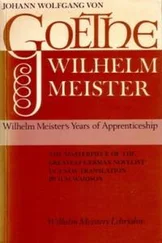I threw myself at her feet, and, seizing her hand, bedewed it with a thousand tears. "Charlotte!" I exclaimed, "God's blessing and your mother's spirit are upon you." "Oh! that you had known her," she said, with a warm pressure of the hand. "She was worthy of being known to you." I thought I should have fainted: never had I received praise so flattering. She continued, "And yet she was doomed to die in the flower of her youth, when her youngest child was scarcely six months old. Her illness was but short, but she was calm and resigned; and it was only for her children, especially the youngest, that she felt unhappy. When her end drew nigh, she bade me bring them to her. I obeyed. The younger ones knew nothing of their approaching loss, while the elder ones were quite overcome with grief. They stood around the bed; and she raised her feeble hands to heaven, and prayed over them; then, kissing them in turn, she dismissed them, and said to me, 'Be you a mother to them.' I gave her my hand. 'You are promising much, my child,' she said: 'a mother's fondness and a mother's care! I have often witnessed, by your tears of gratitude, that you know what is a mother's tenderness: show it to your brothers and sisters, and be dutiful and faithful to your father as a wife; you will be his comfort.' She inquired for him. He had retired to conceal his intolerable anguish,—he was heartbroken, 'Albert, you were in the room.' She heard some one moving: she inquired who it was, and desired you to approach. She surveyed us both with a look of composure and satisfaction, expressive of her conviction that we should be happy,—happy with one another." Albert fell upon her neck, and kissed her, and exclaimed, "We are so, and we shall be so!" Even Albert, generally so tranquil, had quite lost his composure; and I was excited beyond expression.
"And such a being," She continued, "was to leave us, Werther! Great God, must we thus part with everything we hold dear in this world? Nobody felt this more acutely than the children: they cried and lamented for a long time afterward, complaining that men had carried away their dear mamma."
Charlotte rose. It aroused me; but I continued sitting, and held her hand. "Let us go," she said: "it grows late." She attempted to withdraw her hand: I held it still. "We shall see each other again," I exclaimed: "we shall recognise each other under every possible change! I am going," I continued, "going willingly; but, should I say for ever, perhaps I may not keep my word. Adieu, Charlotte; adieu, Albert. We shall meet again." "Yes: tomorrow, I think," she answered with a smile. Tomorrow! how I felt the word! Ah! she little thought, when she drew her hand away from mine. They walked down the avenue. I stood gazing after them in the moonlight. I threw myself upon the ground, and wept: I then sprang up, and ran out upon the terrace, and saw, under the shade of the linden–trees, her white dress disappearing near the garden–gate. I stretched out my arms, and she vanished.
We arrived here yesterday. The ambassador is indisposed, and will not go out for some days. If he were less peevish and morose, all would be well. I see but too plainly that Heaven has destined me to severe trials; but courage! a light heart may bear anything. A light heart! I smile to find such a word proceeding from my pen. A little more lightheartedness would render me the happiest being under the sun. But must I despair of my talents and faculties, whilst others of far inferior abilities parade before me with the utmost self–satisfaction? Gracious Providence, to whom I owe all my powers, why didst thou not withhold some of those blessings I possess, and substitute in their place a feeling of self–confidence and contentment?
But patience! all will yet be well; for I assure you, my dear friend, you were right: since I have been obliged to associate continually with other people, and observe what they do, and how they employ themselves, I have become far better satisfied with myself. For we are so constituted by nature, that we are ever prone to compare ourselves with others; and our happiness or misery depends very much on the objects and persons around us. On this account, nothing is more dangerous than solitude: there our imagination, always disposed to rise, taking a new flight on the wings of fancy, pictures to us a chain of beings of whom we seem the most inferior. All things appear greater than they really are, and all seem superior to us. This operation of the mind is quite natural: we so continually feel our own imperfections, and fancy we perceive in others the qualities we do not possess, attributing to them also all that we enjoy ourselves, that by this process we form the idea of a perfect, happy man,—a man, however, who only exists in our own imagination.
But when, in spite of weakness and disappointments, we set to work in earnest, and persevere steadily, we often find, that, though obliged continually to tack, we make more way than others who have the assistance of wind and tide; and, in truth, there can be no greater satisfaction than to keep pace with others or outstrip them in the race.
November 26.
I begin to find my situation here more tolerable, considering all circumstances. I find a great advantage in being much occupied; and the number of persons I meet, and their different pursuits, create a varied entertainment for me. I have formed the acquaintance of the Count C—and I esteem him more and more every day. He is a man of strong understanding and great discernment; but, though he sees farther than other people, he is not on that account cold in his manner, but capable of inspiring and returning the warmest affection. He appeared interested in me on one occasion, when I had to transact some business with him. He perceived, at the first word, that we understood each other, and that he could converse with me in a different tone from what he used with others. I cannot sufficiently esteem his frank and open kindness to me. It is the greatest and most genuine of pleasures to observe a great mind in sympathy with our own.
DECEMBER 24.
As I anticipated, the ambassador occasions me infinite annoyance. He is the most punctilious blockhead under heaven. He does everything step by step, with the trifling minuteness of an old woman; and he is a man whom it is impossible to please, because he is never pleased with himself. I like to do business regularly and cheerfully, and, when it is finished, to leave it. But he constantly returns my papers to me, saying, "They will do," but recommending me to look over them again, as "one may always improve by using a better word or a more appropriate particle." I then lose all patience, and wish myself at the devil's. Not a conjunction, not an adverb, must be omitted: he has a deadly antipathy to all those transpositions of which I am so fond; and, if the music of our periods is not tuned to the established, official key, he cannot comprehend our meaning. It is deplorable to be connected with such a fellow.
My acquaintance with the Count C—is the only compensation for such an evil. He told me frankly, the other day, that he was much displeased with the difficulties and delays of the ambassador; that people like him are obstacles, both to themselves and to others. "But," added he, "one must submit, like a traveller who has to ascend a mountain: if the mountain was not there, the road would be both shorter and pleasanter; but there it is, and he must get over it."
The old man perceives the count's partiality for me: this annoys him, and, he seizes every opportunity to depreciate the count in my hearing. I naturally defend him, and that only makes matters worse. Yesterday he made me indignant, for he also alluded to me. "The count," he said, "is a man of the world, and a good man of business: his style is good, and he writes with facility; but, like other geniuses, he has no solid learning." He looked at me with an expression that seemed to ask if I felt the blow. But it did not produce the desired effect: I despise a man who can think and act in such a manner. However, I made a stand, and answered with not a little warmth. The count, I said, was a man entitled to respect, alike for his character and his acquirements. I had never met a person whose mind was stored with more useful and extensive knowledge,—who had, in fact, mastered such an infinite variety of subjects, and who yet retained all his activity for the details of ordinary business. This was altogether beyond his comprehension; and I took my leave, lest my anger should be too highly excited by some new absurdity of his.
Читать дальше








![Иоганн Гёте - Итальянское путешествие [litres]](/books/398657/iogann-gete-italyanskoe-puteshestvie-litres-thumb.webp)



